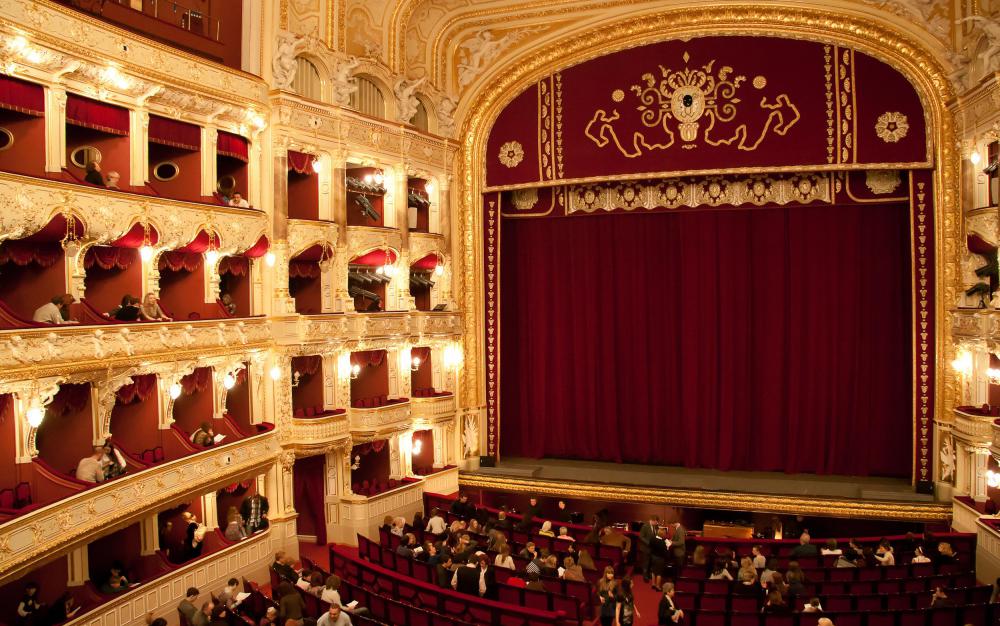At WiseGEEK, we're committed to delivering accurate, trustworthy information. Our expert-authored content is rigorously fact-checked and sourced from credible authorities. Discover how we uphold the highest standards in providing you with reliable knowledge.
What is Fidelio?
Fidelio is an opera composed by Ludwig van Beethoven, a German composer better known for his nine symphonies, piano sonatas, and string quartets. The libretto, inspired by a French drama by Jean-Nicolas Bouilly, was created by Joseph von Sonnleithner in 1805, The drama by Bouilly had already been set three times, in both French and Italian, when Beethoven set to work on the German translation and expansion by Sonnleithner, and Sonnleithner’s libretto was revised twice: first by Stephn von Breuning in 1806, and subsequently by Georg Friedrich Treitschke in 1814.
In the course of this complicated history of creation, the opera was reduced from three acts to two, and underwent a name change. Bouilly’s work was titled Léonore, ou L’amour conjugal. The theater compelled Beethoven to call the opera Fidelio in order to distinguish it from the first French and Italian versions, but it is now standard to refer to the first two versions by Beethoven as Lenore and to call the third version Fidelio. For this reason, the fact that each version had a distinct overture, and some confusion in dating, the overtures for the first two versions are Leonore no. 2 and Leonore no. 3, respectively. There is another overture dating from 1807 that is called Leonore no. 1, and the final version is the Fidelio overture.

Beethoven composed the work through 1804 and 1805, and the premiere of Fidelio took place 20 on November 1805 in Vienna,. It was followed immediately by only two other performances, due to the French occupation of Vienna at that time. The premiere of the final version was on 23 May 1814.
The story of Fidelio is set in Spain in the 1700s, where Act I introduces Marzelline, whose father, Rocco, is the jailer and who has fallen in love with her father’s newly hired assistant, Fidelio. Fidelio is actually Leonore in disguise. She has taken the job in her search for her husband, Florestan, who she suspects has been made a prisoner in Rocco’s prison. Although only Rocco is allowed in the lowest dungeons, by order of the governor of the prison, Don Pizarro, Leonore/Fidelio persuades Rocco to allow her to go on the rounds too, because she suspects that Florestan is there. It turns out that Florestan is indeed being held, that Don Pizarro considers him a personal enemy, and that Don Pizarro plans to kill Florestan before an expected inspection visit by a minister, Don Fernando.

In Act II, Florestan has a vision that Leonore comes to save him, but doubts its truth. Rocco and Leonore arrive and begin digging Florestan’s grave, on Don Pizarro’s orders. Rocco and Leonore/Fidelio give Florestan bread and water, but Florestan does not recognize his wife. Rocco signals Don Pizarro that the grave is ready, and Don Pizarro advances with a dagger, only to be stopped by Leonore with a pistol. At this moment, Don Fernando arrives, and Rocco and Don Pizarro must go out to meet him. After announcing an amnesty, Don Fernando is amazed and delighted when Rocco presents him with Florestan, Don Fernando’s friend, and tells of Leonore’s actions. Don Pizarro is arrested, Leonore removes Florestan’s chains, and all the other prisoners are freed.
AS FEATURED ON:
AS FEATURED ON:












Discuss this Article
Post your comments